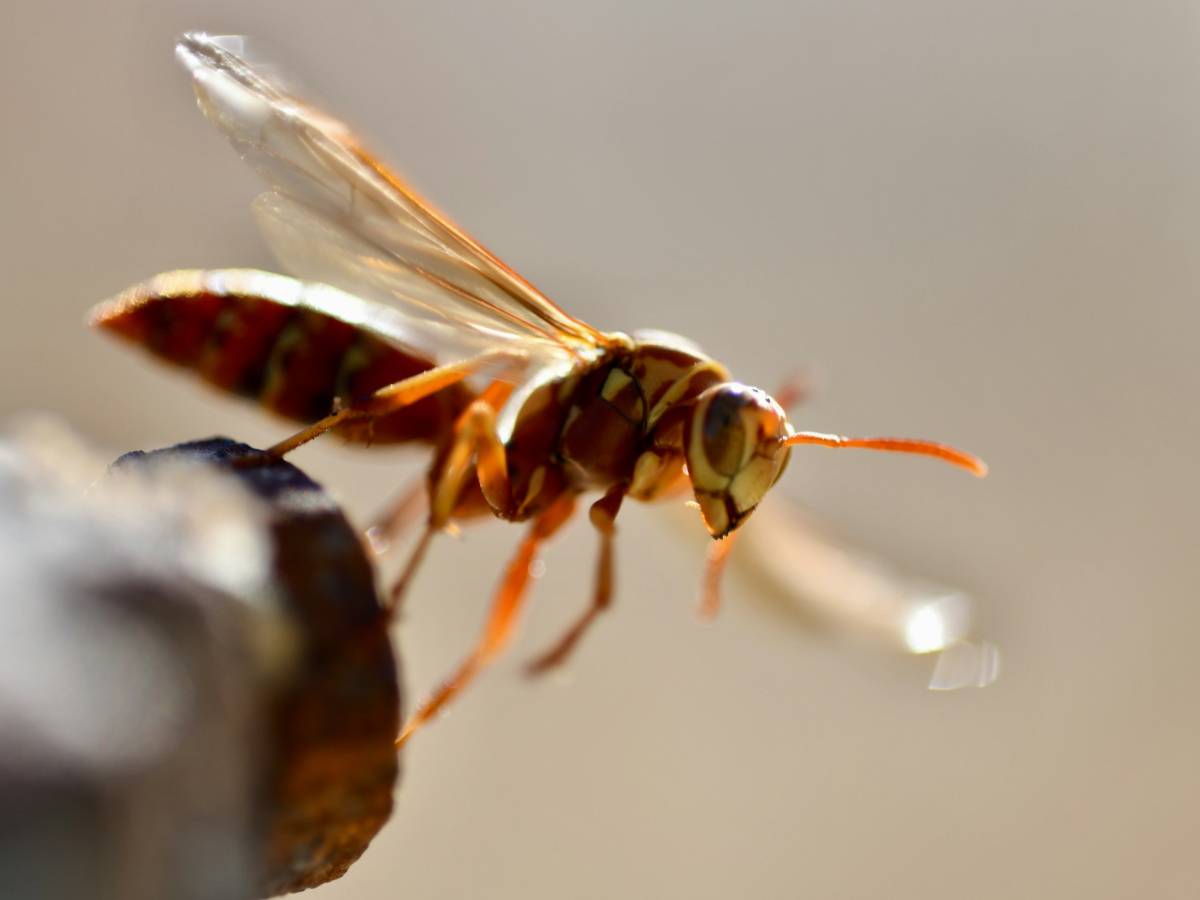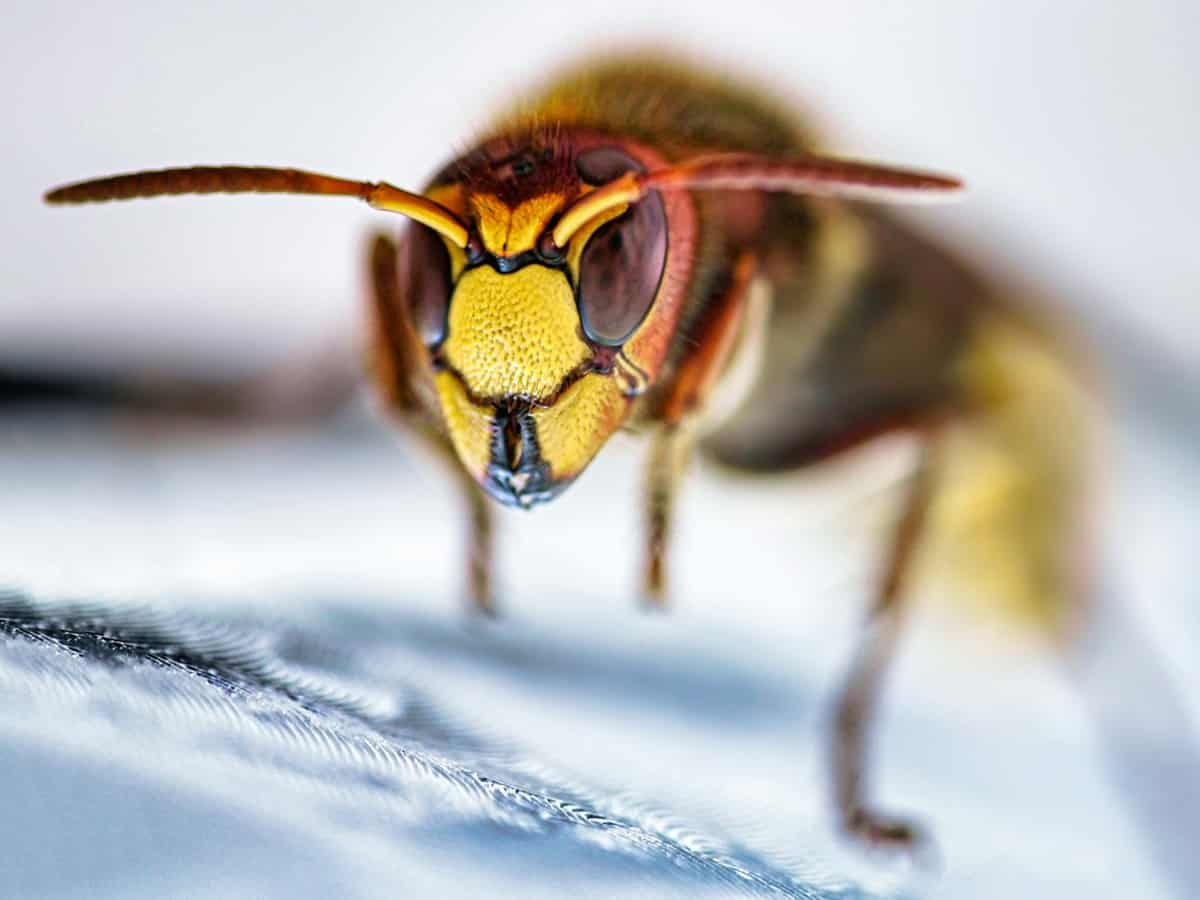Proudly Serving Northern New Jersey, Rockland County & Manhattan
Hornets are one of the most vexing pests to have on your property. Hornets prey on almost every type of pest insect and can be valuable allies in keeping pests out of your home.
The issue is that when stinging insects or their nests are threatened, they become pests that can ruin your day. If you are allergic to their stings, they may even send you to the hospital.
The most crucial thing to watch out for in your area is nests and hives if you want to avoid getting stung. The majority of stings, particularly dangerous stings, occur in defense of a nest. Hornets, in particular, will tag intruders with attack pheromones to alert the rest of the nest against a threat.
Check for hives and nests around your house on a regular basis. If you see one, do not attempt to remove it yourself. Removing a nest incorrectly could result in multiple stings.

As long as you take precautions, a few bees, hornets, and wasps in your yard are a good thing. They’ll keep your flowers blooming. They will keep pests out of your home. However, stinging insects should not be underestimated, and you should immediately contact a professional hornet control expert if you notice them nesting in and around your home or garden.
Bees are vegetarians that collect pollen for their young, whereas wasps and hornets are carnivores that feed on other insects. The main feature they share is that only females can sting.
In contrast to bees, wasps, and hornets have smooth, slim bodies with narrow waists. They are better suited for hunting due to their sleek design. Wasps and hornets eat other insects as well as dead animals and trash. They quickly adapt to any available food source.
Hornets are a type of wasp that is frequently confused with yellow jackets. Wasps are all hornets, but not all hornets are wasps. Hornets are the largest and most powerful members of the wasp family. They also typically have black backgrounds with white banding.
Hornets resemble yellow jackets in appearance and are a very large species of wasp. They have a round abdomen, a thin waist between the thorax and abdomen, four wings, and six legs.
Like other wasps, hornets are eusocial. They divide labor into reproductive and non-reproductive groups, care for each other’s offspring, and have overlapping generations of adults within a colony.
Hornets live in nests made of softwood pulp that they have masticated. The hive hierarchy is dominated by a single queen hornet, and all other hornets prioritize her safety above all else. She is the only hornet capable of laying eggs, so the hive will perish if she is not present.
The majority of workers are asexual female hornets, while male hornets live only to reproduce with the queen. Queens begin nesting in the spring after hibernating all winter.
Hornets are frequently mistaken for bees or other wasp species. Hornets average 3.2 cm (1.25 in) in length, but they can reach lengths of up to 5.6 cm (2.2 in). With a prominent abdomen behind the waist and a large head that distinguishes them, hornets are rounder and plumper than most bees and other wasps.

Hornets construct enormous nests by chewing wood to produce a pulp similar to that of some other wasps. They will use a variety of locations to construct their nests.
They are usually found in lofty locations such as:
Hornets will also construct their underground nests, occasionally in the abandoned rodent burrows. They will hibernate in rotting logs, tree bark, or cracks in building siding.
Compared to the majority of other wasp genera, hornets are less hostile. However, you’ll also notice a few unique features if you’ve been stung by a hornet.
Hornets and other wasps, in contrast to bees, can sting you repeatedly without ever stopping. Additionally, after an attack, hornets do not remove their stinger. Hornet venom is more poisonous than that of other wasps, so their sting is more painful as well.
The main issue is that when a hornet stings, it can emit an attack pheromone, signaling the rest of the hive to sting as well. A hornet swarm can be extremely dangerous to humans and animals, especially if someone is allergic to their venom.
There are several methods for killing hornets quickly:
Insecticides are a popular method of hornet control. Spraying the insecticide directly on the hornets and around the nest will quickly kill them. However, it is critical to wear protective equipment while doing so.
Spraying a solution of water and soap on the nest is another effective way to kill hornets. A tablespoon of soap and a gallon of water can be combined to make the solution. The hornets will be suffocated and killed if the solution is sprayed on the nest.
Another option is to vacuum the hornets with a shop vacuum. Because hornets are sensitive to vibrations, it is critical to use a quiet vacuum that can be operated at a safe distance from the nest.
Setting bait traps is another foolproof method for killing hornets right away. A teaspoon of boric acid and a cup of sugar mixed with water can be used to make bait traps. The hornets will consume the bait and die as a result of the boric acid.
While there are several methods for instantly killing hornets, it is critical to use precautions and protective gear when performing these methods.
Keep in mind that, it is advised to call a professional rather than trying to solve the problem yourself when dealing with stinging insects.
Despite their widespread presence, there are some steps you can take to avoid coming into contact with hornets:
In particular, if the nest is in a hard-to-reach area, hire an expert to remove it safely for you. Be wary of the DIY trend when handling hornet infestations. While these repellents might work for a short while, professional extermination will surely take care of them in a more efficient manner.
And lastly, do not forget that a few wasps, hornets, and bees are good to have in your yard as long as you take safety measures. They’ll continue to bloom your flowers. They’ll prevent pests from entering your house.
However, one should not take stinging insects lightly. Although they are welcome guests, they make terrible neighbors.
With the skills necessary to deal with insects and other creatures, Titan Pest Services is a full-service pest control and extermination business.
Our pest control service treatment plans are tailored to each home and business, so you only pay for what you require. Residential and commercial properties vary in size, as do their needs and concerns; at Titan Pest Services, we offer service treatment plans that address your pest problem.
If you need help keeping your home pest-free or have any questions, please do not hesitate to contact us.